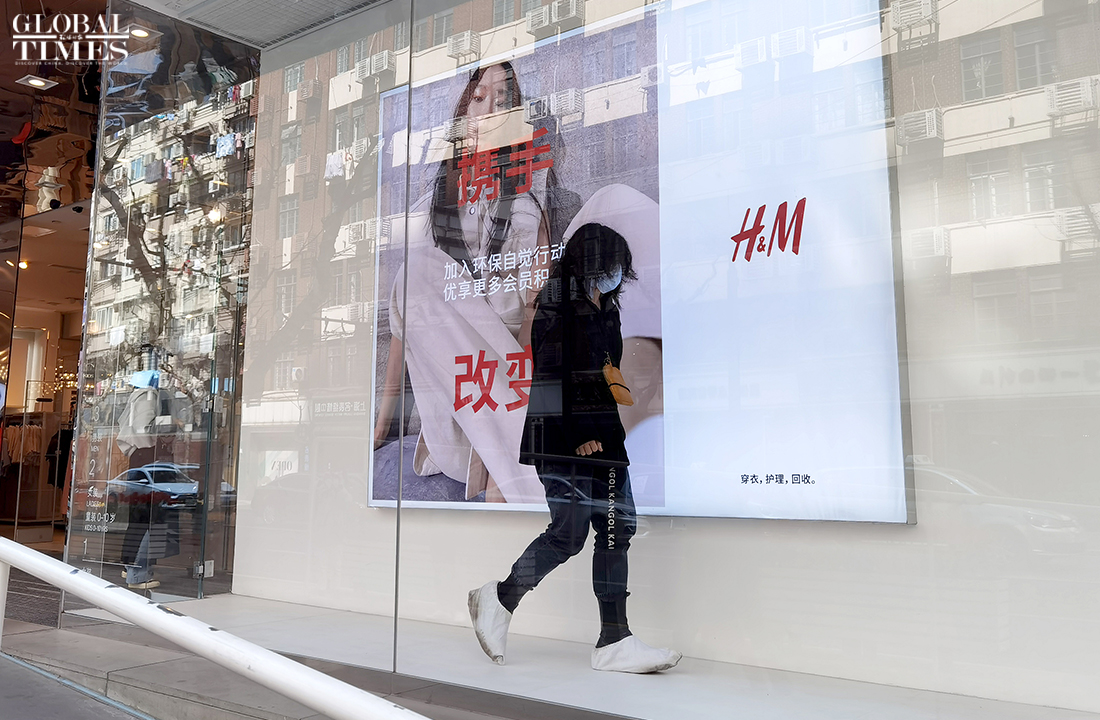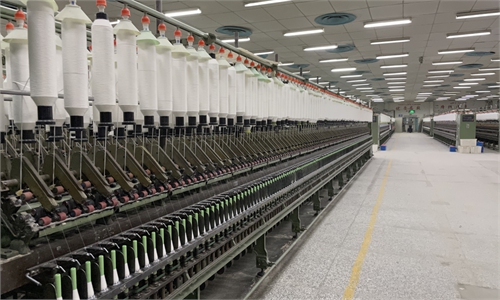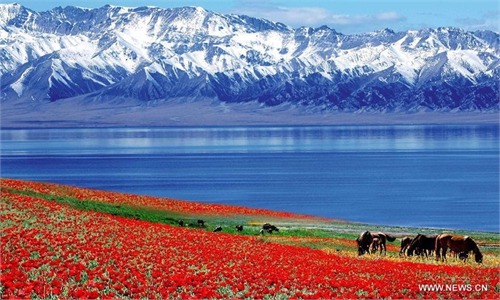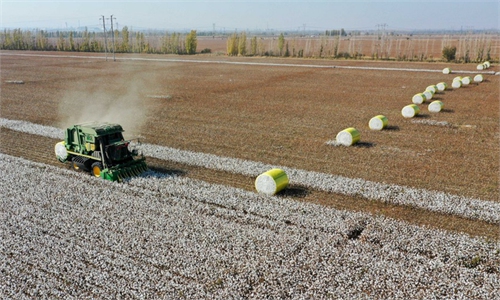
Photo: Yang Hui/GT
More Chinese brands said they are supporting Xinjiang cotton, after boycotts by foreign brands such as H&M, which sparked a backlash among Chinese people.
Market watchers said the issue will bring booming sales for the domestic brands.
More than ten Chinese companies including Anta, Meters Bonwe and Semir announced on their official Weibo accounts that they would keep using Xinjiang cotton.
A member of the marketing department for Chinese textile company Grace told the Global Times on Thursday that they heard from distributers that the number of customers who are willing to buy Xinjiang cotton products has increased noticeably.
Huang Tingyu, vice president of Grace, believes they will get more support and attention from consumers and distribution channels.
“With China’s increasing international influence and people’s growing purchasing power, Xinjiang cotton get more attention from consumers,” said Huang, adding that sales for domestic brands will also be boosted.
Many people shared screenshots of orders being placed with Chinese sportswear maker Li Ning and other domestic brands that use Xinjiang cotton to show their support for the region.
Li Ning Co said in a statement sent to the Global Times that it is not a member of the Better Cotton Initiative (BCI), a Switzerland-based cotton organization that has expressed concerns about Xinjiang cotton.
A customer surnamed Zhang told the Global Times that he will only shop for products from Li Ning.
The stock market also gave a dramatic response to the incident, with domestic brands and textile stocks showing a robust increase. Shares in Hong Kong-listed Li Ning had gone up by over 10 percent by close of trading.
Revenue for Li Ning reached 14.46 billion yuan ($2.21 billion) in 2020, according to its annual financial report released last week. The number of its physical stores in China reached 6,933 and it had 3,600 employees by the end of 2020.
Chinese sports-wear maker Anta Sports announced on Wednesday that it is starting the process of quitting the BCI and will continue to use cotton produced in Northwest China's Xinjiang Uygur Autonomous Region.
The China Cotton Association said on Thursday that it firmly supports Xinjiang cotton, and opposes any restrictions on China's Xinjiang textile and apparel supply chain and related products by Western countries.
It said Xinjiang is China’s largest cotton-producing area, with an annual output of about 5 million tons, accounting for more than 80 percent of the domestic cotton output.
The association said crude suppression from Western governments will not only harm the most vulnerable groups in the industry chain, including millions of cotton farmers and textile workers in Xinjiang, but will also seriously harm the interests of textile and apparel consumers, retailers, distributors and importers in various countries. It will also harm the stable and prosperous development of the world's textile and apparel supply chain and industrial chain.
China's Ministry of Commerce has called on foreign businesses to correct their mistakes in banning Xinjiang cotton and welcomed companies to visit Xinjiang.
Cotton produced in China's northwestern Xinjiang region is "pure and flawless," and has nothing to do with "forced labor" as alleged by some Western forces, said Gao Feng, spokesperson for the Ministry of Commerce on Thursday.
The China Consumers Association said on Thursday that the ban on Xinjiang cotton imposed by some multinational enterprises has negatively impacted the sentiment of Chinese consumers and infringed on their legitimate rights and interests.




